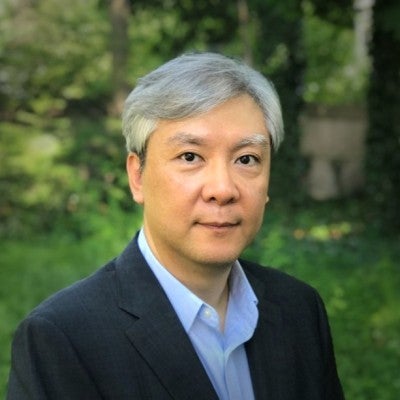KINGSTON, R.I. – Dec. 2, 2021 – Jegoo Lee, an assistant professor of management in the University of Rhode Island’s College of Business, has been awarded a prestigious J. Robert Beyster Fellowship to study the effect of employee ownership on corporate sustainability practices.
The Beyster Fellowship is presented by the Institute for Study of Employee Ownership and Profit Sharing at Rutgers University’s School of Management and Labor Relations. The fellowship is awarded to distinguished young scholars, providing them with support to focus on their scholarly work for a year. While the award has gone to several scholars annually in the past, it has been given to only one researcher in the nation in recent years.
“I’m very pleased and honored to receive this fellowship,” said Lee, in his second year at URI. “They have really supported me with my research project. I am privileged to have access to Rutgers’ resources and a network of colleagues. Rutgers is one of the leading institutions for the study of employee ownership.”
The fellowship includes a stipend, mentoring and the ability to collaborate with scholars at the School of Management and Labor Relations. Lee, a research fellow at the Rutgers school, will also have the opportunity to present his research at the Beyster Symposium in La Jolla, California, in June 2022. He is collaborating on his research with Rutgers Professor Douglas Kruse, an expert on employee ownership and previous member of the Council of Economic Advisors at the White House.
In his research, Lee is exploring how employee ownership influences a company’s corporate social responsibility, the impact of a company’s performance on people and the environment. He is also comparing employee ownership’s effectiveness in combination with other governance models, especially chief executive forms.
Lee’s paper, “Exploring the Effects of Employee Ownership on Corporate Sustainability,” uses more than 25,000 cases of publicly traded companies to determine employee ownership and a company’s environmental performance (on such issues as pollution emission data).
Employee-owned firms make up a small percentage of public companies, but they provide remarkable insights to researchers and business world. “Based on my research so far, there’s a very significant relationship between employee ownership and corporate responsibility,” said Lee, whose research interests include business ethics, corporate responsibility, stakeholder management and social networks. “Interestingly, employee ownership has a more powerful impact on corporate social responsibility than chief executive ownership.
“I believe that’s because employee ownership directly influences corporate culture,” he added. “But executive ownership is very self-interest oriented. Obviously, a CEO is a very important and powerful position, but most CEO ownerships are motivating to the individual rather than the whole corporate culture.”
Lee said there is growing academic interest in exploring the relationship between corporate governance and corporate social responsibility. Two reasons are the high number of corporate and financial scandals and the interest in wage inequality, he said.
Lee’s research takes a look more at the employees’ side of the issue, looking at the importance of workers as primary stakeholders, as opposed to investors, consumers, and suppliers. The pandemic heightened the need of learning from the employee’s perspective.
“When people talk about sustainability, they’re usually talking about the natural environment or surrounding conditions,” Lee said. “They rarely mention human beings. I really want to emphasize human sustainability. We have to think about how to make employees happy and flourishing, and at the same time, they can be more productive.”

